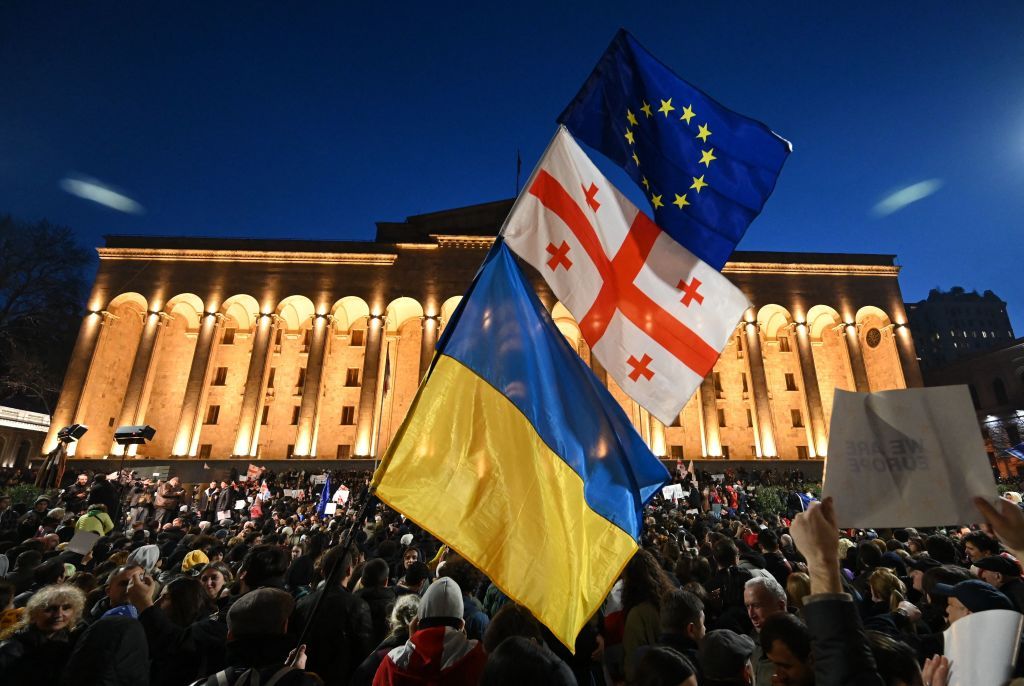European Commission recommends candidate status for Georgia.
European Commission President Ursula von der Leyen formally recommended Georgia receive candidate status to the European Union on Nov.
8. "The Commission recommends that the (European) Council grants Georgia the status of a candidate country on the understanding that certain reforms, that steps are taken," said von der Leyen. The Commission "fully supports the genuine aspirations of the overwhelming majority of its citizens to join the European Union.
These aspirations need to be better mirrored by the authorities who should engage more with the opposition and civil society on matters of national interest," she added. Although receiving candidate status is a very significant step in Georgia's integration process with the EU, there is still much work to do, von der Leyen said. Georgian President Salome Zourabichvili applauded the decision, saying, "As President, I will continue more than ever to play my role as a pro-European leader to facilitate and push the still needed reforms."
Prime Minister Irakli Garibashvili, a political opponent of Zourabichvili, said, "We're grateful for the support & excited to continue our journey towards full-fledged EU membership." Although Garibashvili regularly makes public statements in support of joining the EU, he and the ruling Georgian Dream party have also been criticized for making inflammatory statements about the U.S. and EU. They have also neglected to take a strong stance against Russia, refraining from joining sanctions or other efforts to isolate the country following its full-scale invasion of Ukraine.
Georgia was denied candidate status last year, while Ukraine and Moldova both received it. A poll taken in April 2023 by the International Republican Institute's (IRI) Center for Insights in Survey Research (CISR) found that 89% of Georgians either "fully support" or "somewhat support" joining the alliance.
Batu Kutelia: Lessons from Georgia of geopolitical procrastination Editor's Note: The opinions expressed in the op-ed section are those of the authors and do not purport to reflect the views of the Kyiv Independent.
Feb.
24, 2022, was the date that Russia launched a decisive offensive against the free world. This war has caused a far-reaching domino effect

 Nate Ostiller
Nate Ostiller
News Editor
Nate Ostiller is a News Editor. He works on special projects as a researcher and writer for The Red Line Podcast, covering Eastern Europe and Eurasia, and focused primarily on digital misinformation, memory politics, and ethnic conflict.
Nate has a Master's degree in Russian and Eurasian Studies from the University of Glasgow, and spent two years studying abroad at Kyiv-Mohyla Academy in Ukraine.
Originally from the USA, he is currently based in Tbilisi, Georgia.